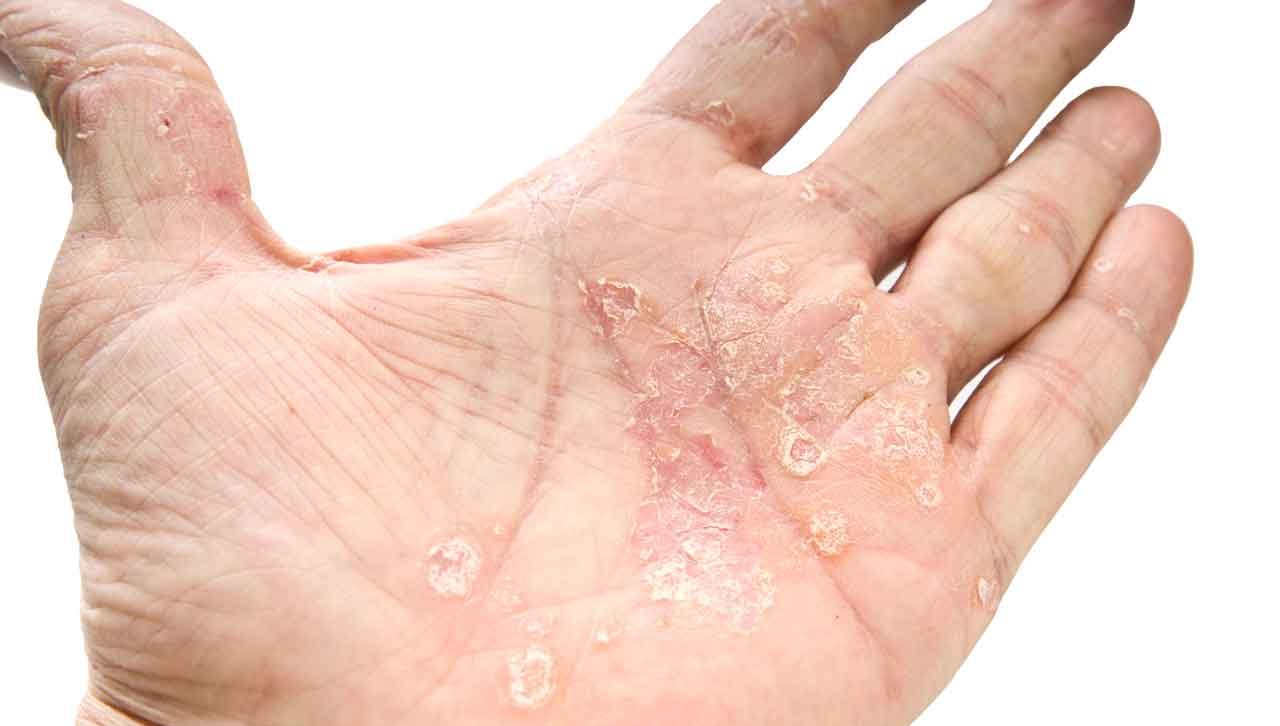Is There a Link Between Psoriasis and Diabetes?

Psoriasis is an inflammatory skin condition that can affect many other areas of your health. The more severe your psoriasis, the higher your risk of diabetes.
Psoriasis is a chronic condition in which your immune system sends incorrect signals that cause skin cells to grow too rapidly. These new cells grow in days, rather than weeks. They build up on the surface of your skin and form raised patches of red or pink skin that are covered with white or silver scales.
Psoriasis is not contagious. It is a genetic condition that, according to the American Academy of Dermatology, affects about 7.5 million people in the United States. Researchers do not yet know what combination of genes cause a person to develop psoriasis, but, like many inflammatory diseases, it is related to other health problems.
Research has shown that psoriasis raises your risk for heart disease, kidney disease, high blood pressure, and metabolic disorders. Other investigations have found that the skin condition can increase your risk of developing type 2 diabetes.
YOU MIGHT ALSO LIKE: What Is Glycemic Load?
Is there a link between psoriasis and diabetes?
Diabetes happens when your body either does not make enough insulin or does not correctly use the insulin it produces. This causes abnormally high levels of blood sugar, eventually damaging your nerves, organs, and other cells.
Psoriasis is an inflammatory disease, and this inflammation can cause insulin resistance, a precursor to type 2 diabetes. Psoriasis and diabetes also share similar genetic indicators, which has led researchers to conclude that there is a biological connection between the two chronic diseases.
Researchers at the University of Pennsylvania School of Medicine examined how the severity of a person’s psoriasis impacts their risk of diabetes. After studying the medical records of more than 80,000 adults, they found that people with even mild psoriasis have a 21 percent higher risk of developing diabetes than those without the skin condition.
The worse a person’s psoriasis is, the higher that risk becomes. Adults with psoriasis covering 10 percent of their body surface are 64 percent more likely to end up with diabetes. Those with psoriasis on 30 percent of their body surface have a diabetes risk that is 104 percent higher than those without psoriasis.
The study’s senior author, Joel M. Gelfand, MD, said that the results should motivate doctors to talk to patients with psoriasis about diabetes prevention and monitor them for warning signs.
"These findings are independent of traditional risk factors for diabetes and still show a strong connection between the increasing severity of psoriasis and the increasing risk of developing diabetes, which makes a strong argument for a causal relationship between the two," Gelfand said.
Will you get diabetes if you have psoriasis?
Having psoriasis does not guarantee that you will end up with diabetes. But it does substantially increase your chances of developing the condition, along with putting you at risk for a number of other dangerous health conditions.
If you have psoriasis, it is important to learn how to make healthy choices that help prevent diabetes. You should also make regular appointments to see your doctor to have your psoriasis monitored and be regularly screened for diabetes.
How to prevent diabetes
If you are at risk, you can make positive lifestyle changes to stay healthy and reduce your chances of developing diabetes or any other chronic diseases.
- Eat a variety of fruits, vegetables, whole grains, and lean meats.
- Avoid foods with trans fats, high sodium, or added sugars.
- Try to eat small portion sizes at meals and avoid mindless snacking.
- Maintain a healthy weight.
- Exercise every day, even if it is just walking.
- Drink water as your main beverage and avoid sugar-sweetened drinks.
- Quit smoking and avoid secondhand smoke.
- Visit your doctor regularly to look for signs of diabetes.
YOU MIGHT ALSO LIKE: 9 of 10 People with Prediabetes Don’t Know
Updated:
March 06, 2023
Reviewed By:
Janet O’Dell, RN